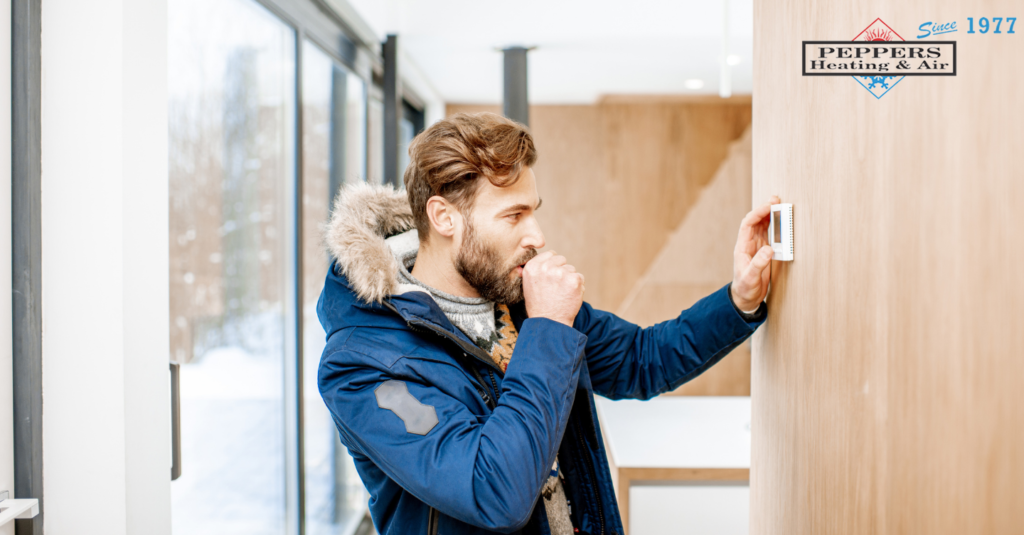As winter approaches and temperatures start to fall, you want to ensure that your home is ready for the colder weather. By winterizing your home, you not only preserve your home but potentially save money from not having expensive repairs. Winterization needs to be done on both the inside and outside of your home. The good news is that it is a relatively easy process to complete. Here are the steps you should take to winterize your home.
Preparing Your HVAC Unit
When deciding to winterize your home, you may not think of including your heating or air conditioning system. However, including it has many benefits. In addition to protecting your unit from snow and ice, it also helps in preventing rust damage. The entire process takes about a few minutes to complete. You want to do it on a sunny day which will help with drying. It is also helpful to schedule a service call with an HVAC contractor during this time to ensure your system is running efficiently.
How To Winterize an HVAC
To start, you want to rinse off the outside of your HVAC unit. Make sure that any dirt or tree limbs that are around the unit have been removed. Also, if there are any weeds or vines that have grown around your system, cut them back. Allow it to dry off completely after fully washing the unit. Next, place either a tarp or a protective cover over the unit that covers the top of the machine. This helps in the event of falling snow or ice, which could get into the system and cause damage. While many covers are designed to fit perfectly over your HVAC unit, you can also use bungee cords or brick to hold it in place.
Another step you can take is to protect the pipes that connect to your unit. Cover exposed pipes with either foam or rubber pipe insulation. Most hardware stores have this insulation ready for purchase. Some models of the insulation are self-adhesive, while others need to be reinforced with duct tape. The insulation keeps your pipes from freezing and potentially breaking during colder months. As the season progresses, keep up with monitoring your HVAC system by regularly sweeping off snow and ice and clearing away any debris or small animals that have found their way inside your unit.
Winterizing the Rest Of Your Home
Doing winter maintenance on your HVAC unit is a great way to protect it from hazards that could arrive in colder months. The same can be said when it’s time to winterize your home. It is a necessity for homeowners, especially those in areas where winters can be extremely cold. The amount of winterization you decide can vary on a lot of factors, but there are some steps that every homeowner should take.
To start, consider winterproofing doors or windows. Doing so prevents cold air from getting into your house. It’s relatively easy to winterproof; weather stripping is available for both doors and windows, as well as door sweeps. You may also want to consider installing storm doors or windows, both of which can keep cold air outside. Next, look around your house for exposed pipes and cover them with insulation. If there are any air leaks, seal them to stop cold air from coming in. Typically, air leaks occur in an attic, around electrical outlets, or in other areas. An HVAC contractor searches for these leaks and seals them.
Additional Tips
For homes that have a fireplace, the winterization process is a great time to have it looked at. Inspect chimneys on an annual basis if you have one. A chimney specialist will clean out the area as well as any obstructions that could cause a fire hazard. They will also verify that the damper opens and closes properly without leaving gaps. Winterization is also a great time to check the batteries in your smoke alarms and carbon monoxide detectors to make sure they are functioning correctly. In addition, for homes with an older thermostat, installing a new programmable or smart model lets you automate your heating system for maximum efficiency.
While winterizing your home can seem like a daunting process, knowing what to focus on can make things go easily. Many items on a winterization checklist can be done proactively. For things that can’t, an HVAC contractor is ready to help you. It only takes a few minutes to ensure that your home is protected from the cold both inside and out.
Need more information on home winterization?
Contact the professionals at Peppers Heating and Air today!



